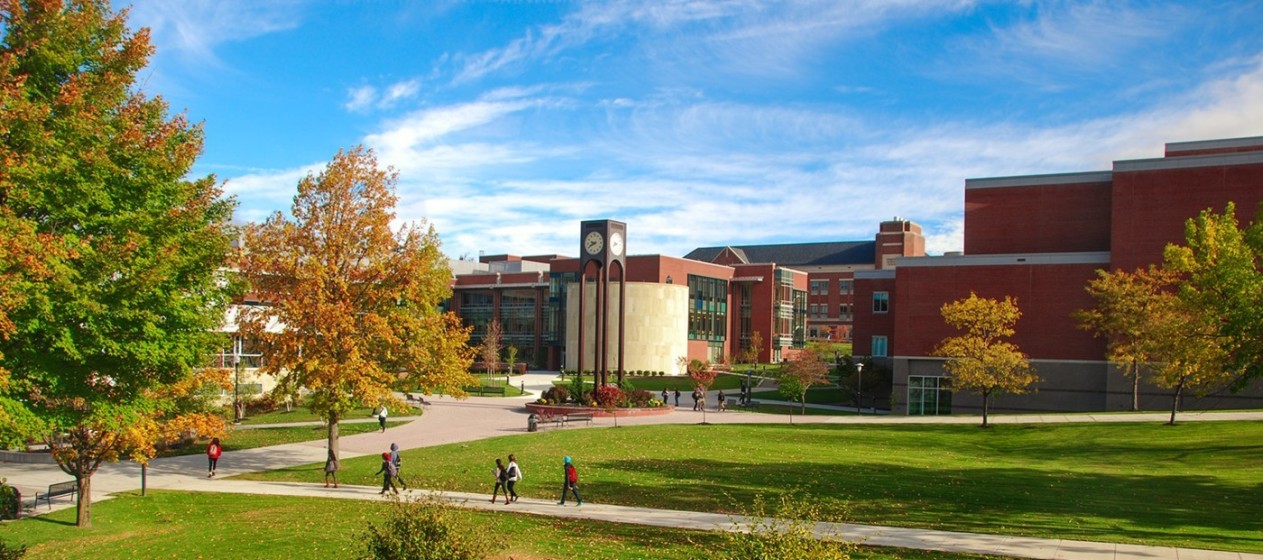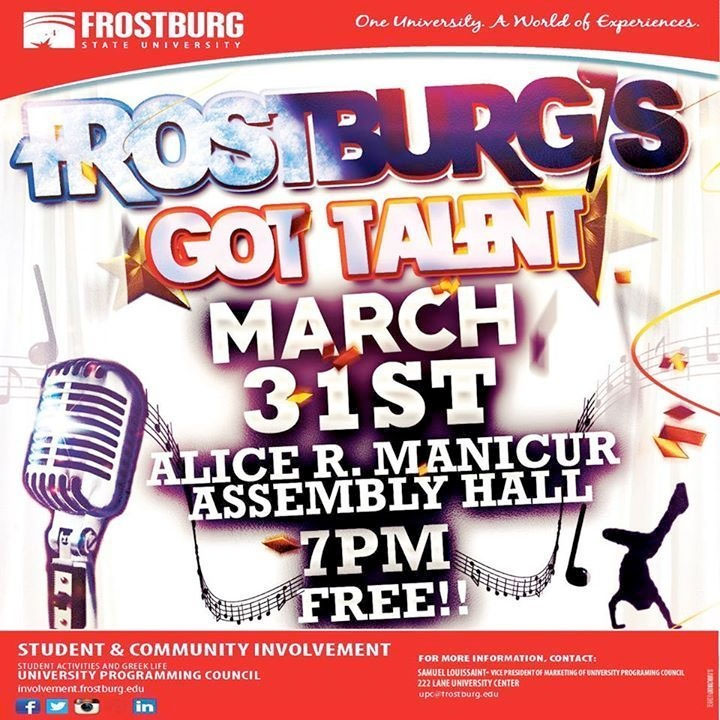“In order to avoid refunds, they’re putting everyone at risk”: FSU Faculty and Staff React to Campus Re-opening
Shifting messages from Frostburg State University’s administration regarding the reopening of campus on Sunday, March 22 in the face of COVID-19 has some wondering: why?
For Andy Duncan, a Professor in the Department of English, he says that “universities are trying to maintain the fiction that they are not, indeed, closed, in order to justify not refunding students’ tuition and fees.”
Higher education experts like Mark Kantrowitz say that “you can’t charge for goods and services that you don’t provide,” However, President Ronald H. Nowaczyk told students on March 10 that reimbursement was something “we haven’t thought of yet and we will play it by ear.”
In a social media post, Mr. Duncan goes on to say that, “these administrative sophistries are putting entire communities at risk. Students who have nowhere else to go but their dorms need to be fed, housed and protected, but buildings that aren’t dorms or dining halls need to be locked and void of personnel during this emergency, and the vast majority of employees need to stay home.”
Frostburg’s plan is inconsistent with that message, as well as advice from representatives like Ted Cruz of Texas and Alexandria Ocasio-Cortez of New York who both declared on Twitter, “if you can stay home, stay home.”
Others, like Dr. Anthony Fauci, Director of the National Institute of Allergy and Infectious Disease (NIAID) go further. Fauci says that it could be “a few months” until life goes “back to normal” and that we should exercise a “dramatic diminution” of personal interactions to fight COVID-19. Fauci is considered to be the country’s top infectious disease expert.
Instead, FSU plans to re-open on Sunday, March 22. Classes have been shifted online until Monday, April 6. As of press time, the FSU COVID-19 page says, “The campus will remain open following spring break, and students may return to campus on Sunday, March 22, at the regularly scheduled time.” As TBL has previously reported, this decision is contrary to University System of Maryland guidance.
The FSU COVID-19 page has not been updated since 4:15 p.m. on Friday, March 13.
Some staff and faculty are being asked to return even before March 22, however.
Dr. Sydney Duncan, Chair of the Department of English wrote on social media, “The university is on spring break this week and then in all online mode. Yet, I’m told starting tomorrow that our building must stay open and that I need to work with others to have someone there during official hours.”
It was a surprise to Dr. Duncan that this request came. She says, “we had conversations on Friday about who could telework, so I thought it was settled.”
Dr. Duncan says she has reached out for clarification about why lecture halls needed to be staffed during spring break and did not receive an answer from Dean of Liberal Arts and Sciences Dr. Kim Hixson, as of press time.
“I suspect, given what I’m hearing from folks at other universities, this request soon will be withdrawn. I hope so.”
For students returning on March 22, FSU says that, “Food service, computer labs, Lane Center and the library will be available.”
One concern voiced at the student forum on March 10 which was held by President Nowaczyk, Provost Dr. Elizabeth Throop, and Vice President for Student Affairs Dr. Artie Travis was about paid sick leave for Chartwell’s Dining staff members. At the time, Dr. Nowaczyk said, “We have a plan in place for that situation. Chartwell’s, which is a national company, has some essential personnel and will have to move people around, but they have a plan in place. We have been in discussions with them.”
TBL reached out to Chartwell’s Director of Dining Services, Pamela Detrick, to ask for clarification about paid sick leave for dining hall employees. Detrick did not answer, as of press time.
Chartwell’s Higher Education Dining is owned by the Compass Group. Their employee handbook says that personal leave time is available to full-time staff only. Moreover, “unscheduled absences of three (3) or more consecutive work days due to health-related reasons must be accompanied by a health provider statement that indicated you are released to return to work on the date you return.” Furthermore, supervisors may request provider statements for unscheduled, health-related absences of less than three days. Paid sick leave is not expressed in the handbook.
It is unknown if all of the same guidelines apply to Chartwell’s employees at FSU.
The Compass Group “Chief People Officer,” Cindy Noble posted a COVID-19 update to their website recently. The press release, seen online here, does not include information related to paid sick leave for employees.
Other employees, such as those that work at the Harold J. Cordts Physical Education Center, have expressed concerns over reopening, also. In a March 11 email, the campus community was informed that the P.E. Center would reopen on Monday, March 16 at 6:00 a.m. Facilities available starting tomorrow include the fitness center and pool.
City of Frostburg residents have also been discussing the university’s reopening. At the Thursday, March 12 Mayor and City Council work session, Mayor Robert Flanigan said he believed that the situation was evolving and would “be resolved within 36 hours.”
However, since the March 10 announcement about classes going online through April 6, President Nowaczyk has not changed any aspects of the university reopening.
Nina Forsythe, a Frostburg resident, addressed FSU’s SGA on Thursday, March 12 about her own concerns saying, “We have an older than average population, many immuno-suppressed residents, and a small hospital system that could quickly become overwhelmed.” Forsythe is also a Frostburg City Councilor but was attending the March 12 meeting as a resident of the city.
Kit Pepper, another Frostburg resident, says, “I am disappointed that no explanations are being offered.” Pepper continued to say, “Everyone else is telling students who leave campus to stay home until further notice. Homeless students are still being accommodated, but here at FSU they are encouraging unnecessary travel. They are encouraging unnecessary social interaction. They are bringing thousands of extra people to an area with limited medical facilities.”
Others are less concerned. Kristan Carter, owner of The Toasted Goat and Hotel Gunter, wrote on a public social media post, “FSU has many foreign students who have nowhere to go, kudos to the university for not turning their back on their students.”
Carter also claimed that only 100 students were remaining on campus over spring break, with only 60 additional students due to return on March 22. Carter says she got the information “from a good source in the university administration.” Carter is married to Frostburg City Councilor Donny Carter.
The FSU COVID-19 website does not indicate whether students must pre-register to return on March 22 or not.
As for K-12 schools, Governor Larry Hogan of Maryland and State Superintendent of Schools Dr. Karen Salmon have closed public schools through Friday, March 27 with students returning on Monday, March 30, as of now. Moreover, a teacher told TBL that Allegany County Public Schools “faculty have been informed that they are not allowed to go back on their campus for any reason,” not even to get items from their classrooms.
The confusion and discourse has many returning to the root question: why?
“In order to avoid refunds, they’re putting everyone at risk,” says Mr. Duncan.





2 Comments
Is Mr. Duncan ok with foregoing his paycheck for the semester since he would not be teaching for the rest of the semester?
So what happens to the students that have no where else to go? FSU is their home for the time being. Are we to just toss them out of the street and say sorry about your luck, try again next year. Sad money is more important than thinking about your students means of survival.